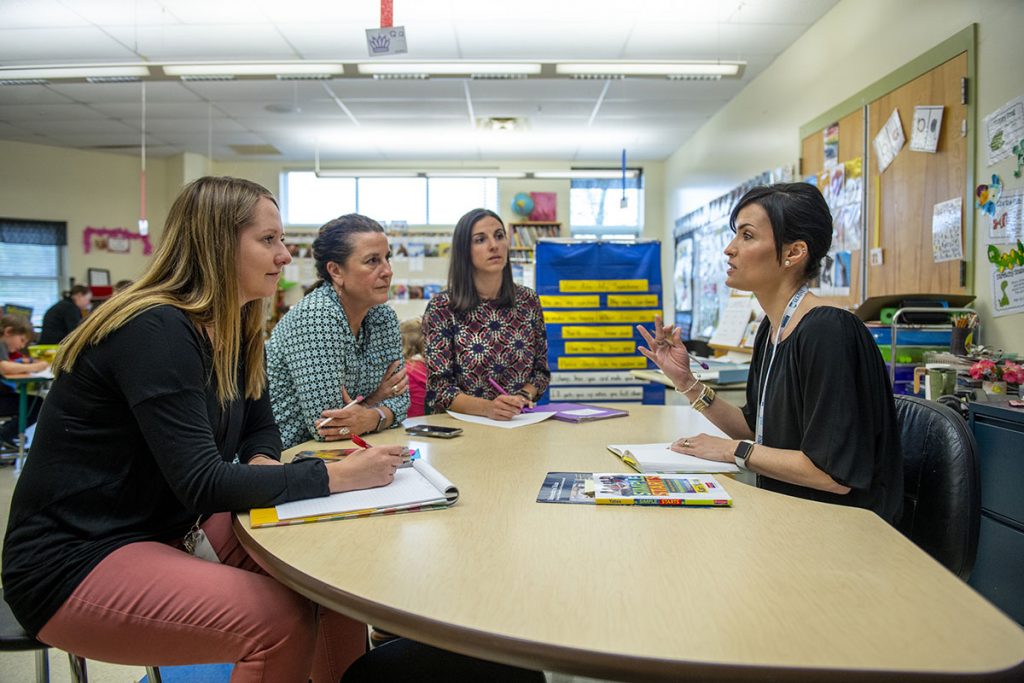Leadership Team

The literacy leadership team assumes responsibility for the school literacy program and provides support for the implementation of the Maine Partnerships in Comprehensive Literacy model in the school. “Creating a culture for collaboration that supports teacher learning is vital to the health and life of the school” (Lyons & Pinnell, 2001). Team meetings are proactively built into the school calendar. Dates for these meetings are set in the fall or spring, when the school calendar is developed. “Literacy must be viewed through a wide-angle lens. It takes many dedicated people working together to ensure every child’s right to literacy. A single program or a single teacher cannot bring about comprehensive changes within the school” (Dorn & Jones, 2012).
The literacy leadership team assumes the following categories of responsibilities:
- Reviewing and ensuring the implementation of the Maine Partnerships in Comprehensive Literacy Standards and Guidelines
- Introducing the faculty to the Maine Partnerships in Comprehensive Literacy model and literacy framework
- Discussing school-wide assessment tools that are being used and/or setting up new assessment tools to better evaluate the program at the school level (Dorn & Soffos, 2001b)
- Deciding upon the location of the school book room
- Securing budget funds for multiple copies of books for the book room
- Securing budget funds for individual classroom libraries and materials
- Monitoring the literacy progress of all students (Dorn & Jones, 2012; Dorn & Soffos, 2001b)
- Regularly assessing site progress in implementing Maine Partnerships in Comprehensive Literacy
- Analyzing school data to determine changes that need to occur in curriculum, instruction, and practice (Dorn & Soffos, 2001a; 2001b)
- Ensuring that beliefs about literacy development (Dorn & Jones, 2012; Dorn & Soffos, 2005) match curriculum, instruction, and practices (i.e. reporting systems, assessment procedures)
- Ensuring that the school is offering high quality intervention and classroom programs
- Planning for professional development classes
- Assisting the principal in developing schedules that support an uninterrupted 2.5 – 3 hour block of literacy learning time
References
Dorn, L.J. & Jones, T. (2012). (2nd ed.). Apprenticeship in literacy: Transitions across reading and writing. Portland, ME: Stenhouse Publishers.
Dorn, L.J. & Soffos, C. (2005). Teaching for deep comprehension: A reading workshop approach. Portland, ME: Stenhouse Publishers
Dorn, L.J. & Soffos, C. (2001a). Scaffolding young writers: A writers’ workshop approach. Portland, ME: Stenhouse Publishers
Dorn, L.J. & Soffos, C. (2001b). Shaping literate minds: Developing self-regulated learners. Portland, ME: Stenhouse Publishers
Lyons, C., & Pinnell, G.S. (2001). Systems for change in literacy education: A guide to professional development. Portsmouth, NH: Heinemann
